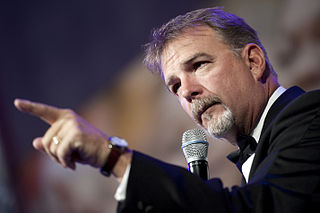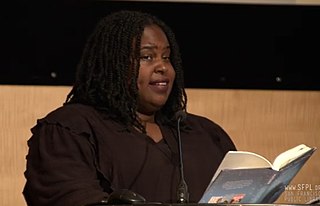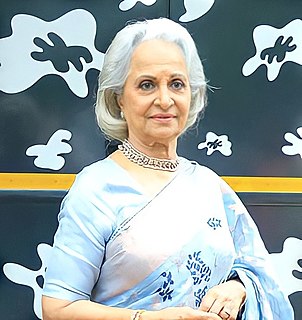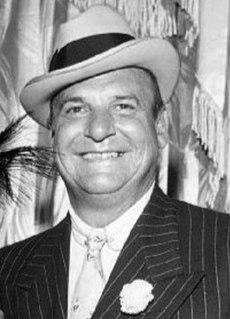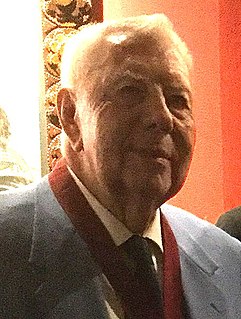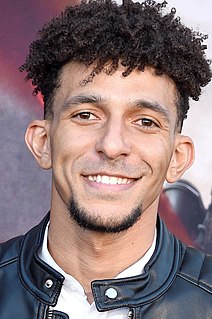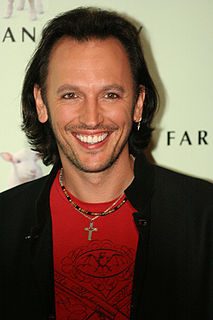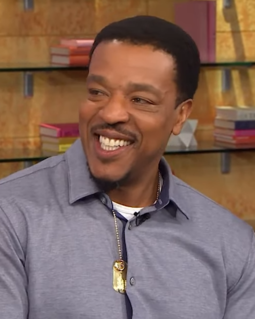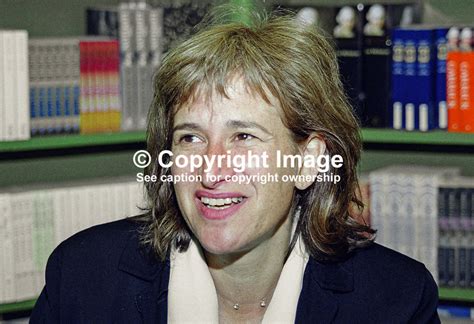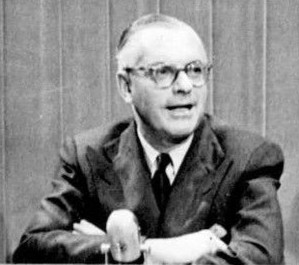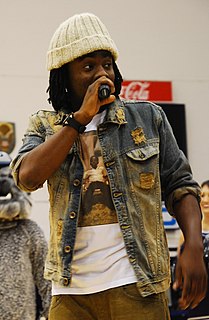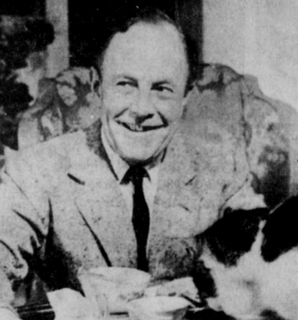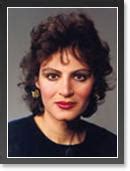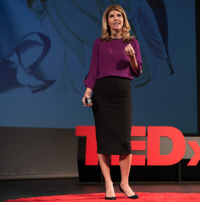Top 1200 Close Reading Quotes & Sayings - Page 17
Explore popular Close Reading quotes.
Last updated on November 16, 2024.
These days, most of my interactions with young people are centered on the poetry or theater classes I teach, so the students I know are reading contemporary poets (they love Willie Perdomo) and scripts (No Child, by Nilaja Sun and Twilight by Anna Deavere Smith). I don't know their reading habits outside of our class, but I believe that they enjoy stories that they can relate to, learn from, be challenged by - you know, the usual good writing that every reader craves.
I challenge youth to cooperate with parents who are concerned about your reading and your viewing. Be concerned yourself about what you take into your mind. Young people, you would never eat a meal of spoiled or contaminated food if you could help it, would you? Select your reading and viewing carefully and in good taste.
When I'm writing, I try to have the mask of my character on as I'm walking through the world. When I'm not at my desk, the rest of the time, I try to stay in that character and see the world the way that character would It's almost like method acting in a way — keeping the character close the way the actor keeps a script close and always tries to be in character.
I know not a better rule of reading the Scripture, than to read it through from beginning to end and when we have finished it once, to begin it again. We shall meet with many passages which we can make little improvement of, but not so many in the second reading as in the first, and fewer in the third than in the second: provided we pray to him who has the keys to open our understandings, and to anoint our eyes with His spiritual ointment.
The other book that I worry no one reads anymore is James Joyce's Ulysses. It's not easy, but every page is wonderful and repays the effort. I started reading it in high school, but I wasn't really able to grasp it. Then I read it in college. I once spent six weeks in a graduate seminar reading it. It takes that long. That's the problem. No one reads that way anymore. People may spend a week with a book, but not six.
We have an obligation to read aloud to our children. To read them things they enjoy. To read to them stories we are already tired of. To do the voices, to make it interesting, and not to stop reading to them just because they learn to read to themselves. Use reading-aloud time as bonding time, as time when no phones are being checked, when the distractions of the world are put aside.
The logic: Reading is a private pursuit, one that often takes place behind closed doors. A young lady might retreat with a book, might even take it into her boudoir, and there, reclining on here silken sheets, imbibing the thrills and chills manufactured by writerly quills, one of her hands, one not absolutely needed to grip the little volume, might wander. The fear, in short, as one-handed reading. [p. 146]
I've been doing magic since I was five years old, and when I was trying to get acting gigs, I found I could make a good living at it. It's great to kind of shake the cobwebs off and get the feeling of a live audience again. I love close-up magic, the card stuff, the coin stuff, the really up-close David Blaine stuff.
To me the question right now is: How do I close that first three-quarters of the achievement gap, education gap, wealth gap? What gives me the best chance to do that? And I'm pretty darn sure that if America is a just society and treating people well right now, irrespective of past wrongs, that I'm going to close a big chunk of that gap. I've seen it.
We tried some experiments in mind reading which were not very successful. Think mind reading contrary to common sense, wise provision of the Bon Dieu that we cannot read each others minds, twould stop civilization and everybody would take to the woods. In fifty or hundred thousand centuries when mankind have become perfect by evolution then perhaps this sense could be developed with safety to the state.
During chemo, you're more tired than you've ever been. It's like a cloud passing over the sun, and suddenly you're out. But you also find that you're stronger than you've ever been. You're clear. Your mortality is at optimal distance, not up so close that it obscures everything else, but close enough to give you depth perception. Previously, it has taken you weeks, months, or years to discover the meaning of an experience. Now it's instantaneous.
Serious reading is hardly a social activity and every halfway serious reader is perpetually subject to a form of coitus interruptus. Family members or friends who lack the desire, the courage, or the opportunity to burst in on you when there's some indication that you could be sexually entwined will seldom hesitate to interject themselves between you and a page, even though the act of reading is often as intimate and intense as a full-fledged carnal embrace.
Reading is a pleasure of the mind, which means that it is a little like a sport: your eagerness and knowledge and quickness count for something. The fun of reading is not that something is told to you, but that you stretch your mind. Your own imagination works along with the authors, or even goes beyond his, yields the same or different conclusions, and your ideas develop as you understand his.
There is convincing evidence that the search for solitude is not a luxury but a biological need. Just as humans posses a herding instinct that keeps us close to others most of the time, we also have a conflicting drive to seek out solitude. If the distance between ourselves and others becomes too great, we experience isolation and alienation, yet if the proximity to others becomes too close, we feel smothered and trapped.
An entire life spent reading would have fulfilled my every desire; I already knew that at the age of seven. The texture of the world is painful, inadequate; unalterable, or so it seems to me. Really, I believe that an entire life spent reading would have suited me best. Such a life has not been granted me.
I believe it's impossible to write good poetry without reading. Reading poetry goes straight to my psyche and makes me want to write. I meet the muse in the poems of others and invite her to my poems. I see over and over again, in different ways, what is possible, how the perimeters of poetry are expanding and making way for new forms.
I felt the call to this industry because I enjoy broadcast journalism. I'm steeped in the news because I enjoy the news - I like reading papers; I like reading the blogs. I love talking to newsmakers and pundits, for that matter, about their opinions. I'm an information gatherer by nature, so that's what attracted me about this industry.
Although I'm not prepared to move up my prediction of a computer passing the Turing test by 2029, the progress that has been achieved in systems like Watson should give anyone substantial confidence that the advent of Turing-level AI is close at hand. If one were to create a version of Watson that was optimized for the Turing test, it would probably come pretty close.
I love short stories - reading and writing them. The best short stories distill all the potency of a novel into a small but heady draught. They are perfect reading material for the bus or train or for a lunchtime break. Everything extraneous has been strained off by the author. The best short stories pack the heft of any novel, yet resonate like poetry.
I find just in terms of free time I'm always envious of people I know who... listen to music, watch films, play games, read books. I have to pick. And I find frequently that if I've got Sophie's Choice, I'll try to keep up with music and keep up with films. So my book reading and comic reading and game playing is terrible and infrequent.
One should learn from a book. Books have a lot to teach us. They have a lot of empathy to impart to us, but they should also be fun. This stuff is fun! You shouldn't pick up a book and say, "Oh my god, I'm gonna better myself by reading this." You may better yourself by reading this, but who cares? Just have fun.
Where, after all, do universal human rights begin? In small places, close to home - so close and so small that they cannot be seen on any maps of the world ... Such are the places where every man, woman and child seeks equal justice, equal opportunity, equal dignity without discrimination. Unless these rights have meaning there, they have little meaning anywhere.
I do have a close circle of friends and I am very fortunate to have them as friends. I feel very close to them I think friends are everything in life after your family. You come across lots of people all the time but you only make very few friends and you have to be true to them otherwise what's the point in life?
God, the bitter misery that reading works into this world! Everybody knows that - everbody who IS everybody. All the best minds have been off reading for years. Look at the swing La Rouchefoucauld took at it. He said that if nobody had ever learned to read, very few people would be in love. Good for you, La Rouchefoucauld; nice going, boy. I wish I’d never learned to read.
So this is supposed to be about the how, and when, and why, and what of reading -- about the way that, when reading is going well, one book leads to another and to another, a paper trail of theme and meaning; and how, when it's going badly, when books don't stick or take, when your mood and the mood of the book are fighting like cats, you'd rather do anything but attempt the next paragraph, or reread the last one for the tenth time.
I follow the way people change. I follow the way people, who are very antagonized to one another become very close to one another and vice-versa. Sometimes I follow the way people who are intimately close to each other move apart. This is my business as a novelist. It is not about positions and ideas.
... teaching cannot be a process of transference of knowledge from the one teaching to the learner. This is the mechanical transference from which results machinelike memorization, which I have already criticized. Critical study correlates with teaching that is equally critical, which necessarily demands a critical way of comprehending and of realizing the reading of the word and that of the world, the reading of text and of context.
I must suppose that reading wonderful writers may, inadvertently, teach an avid reader a great deal -- not only about life and other matters, but about how to write. Therefore doubtless I have benefited from frequent immersions in the glowing genius of others. It would be nice to think so. (I do actually think so). But to improve my skills will never be the prompting force of my reading -- that's just literary lust.
The president of the United States who has a history of firing people who get close to, you know, him and his allies like Flynn, and like Miss Yates, he will fire them if he believes somehow they're getting too close to him in the investigations. I believe that the president of the United States should not have fired Comey in the middle of an investigation.
Heaven, Kiwi thought, would be the reading room of a great library. But it would be private. Cozy. You wouldn't have to worry about some squeaky-shoed librarian turning the lights off on you or gauging your literacy by reading the names on your book spines, and there wouldn't be a single other patron. The whole place would hum with a library's peace, filtering softly over you like white bars of light.
This may sound like heresy, but it is the greatest truth! It is more difficult to let God love us, than to love Him! The best way to love Him in return is to open our hearts and let Him love us. Let Him draw close to us and feel Him close to us. This is really very difficult: letting ourselves be loved by Him. And that is perhaps what we need to ask today in the Mass: 'Lord, I want to love You, but teach me the difficult science, the difficult habit of letting myself be loved by You, to feel You close and feel Your tenderness ! May the Lord give us this grace.
It was an emergency!" Seth blurted. "Read my lips - emergency reading - not some demented idea of fun. If I was starving, I would eat asparagus. If somebody held a gun to my head, I would watch a soap opera. And to save Fablehaven, I would read a book, okay, are you happy?" You had best be careful, Seth," Grandma warned. "The love of reading can be contagious." I just lost my appetite," he declared.
When I was on the set, I was not talking on the phone or reading anything else. I was just reading things, listening to music and watching things that had to do with the state of the scene. So it would be a constant, maintaining for the whole day that state. If I had an hour off for lunch, I would put on a movie or something that would help me stay in that area. And at the end of the day, I was like a zombie.
In order to have a charismatic leader, you have to have a charismatic program. Because if you have a charismatic program, then if you can read you can lead. When the leader gets killed while you're reading from page 13 of your charismatic program, you can bury the man with honors, then continue the plan by reading from page 14. Let's keep on.
I never imagined when I wrote my first book on Strauss that the unscrupulous elite that he elevates would ever come so close to political power, nor that the ominous tyranny of the wise would ever come so close to being realised in the political life of a great nation like the United States. But fear is the greatest ally of tyranny.
I learned to write from reading. I had no writing classes. It's part of my thinking as the writer-author, reading, but then I also want to bring this into my characters, who also read and think. There's that great quote from Virginia Woolf - it's very simple: "...books continue each other." I think when you're a writer, you're also, hopefully, a reader, and you're bringing those earlier works into your work.
There is a wonderful book called "Gandhi's Truth," by Erik Erikson, the psychologist. It is a great book. And I remember reading that and thinking about this connection between what we think in our personal lives and how that manifests itself in our politics. Those are two books, just off the top, that I think are sort of representative of reading that I did at that time. I never get a chance to read anymore.
Depending on the day or even the hour, productivity can take very low dips. At times, I may feel like throwing in the towel. I love being inspired by amazing women who have achieved great things. When I have a setback, I will spend 15 minutes reading quotes from strong women or reading or watching an interview with a woman I admire (a gold medalist or a CEO). This gets me back in the right mindset to tackle any challenge.
Our debt to tradition through reading and conversation is so massive, our protest so rare and insignificant-and this commonly on the ground of other reading and hearing-that in large sense, one would say there is no pure originality. All minds quote. Old and new make the warp and woof of every moment. There is no thread that is not a twist of these two strands. By necessity, by proclivity, and by delight, we all quote. It is as difficult to appropriate the thoughts of others as it is to invent.
For most people, what is so painful about reading is that you read something and you don't have anybody to share it with. In part what the book club opens up is that people can read a book and then have someone else to talk about it with. Then they see that a book can lead to the pleasure of conversation, that the solitary act of reading can actually be a part of the path to communion and community.
